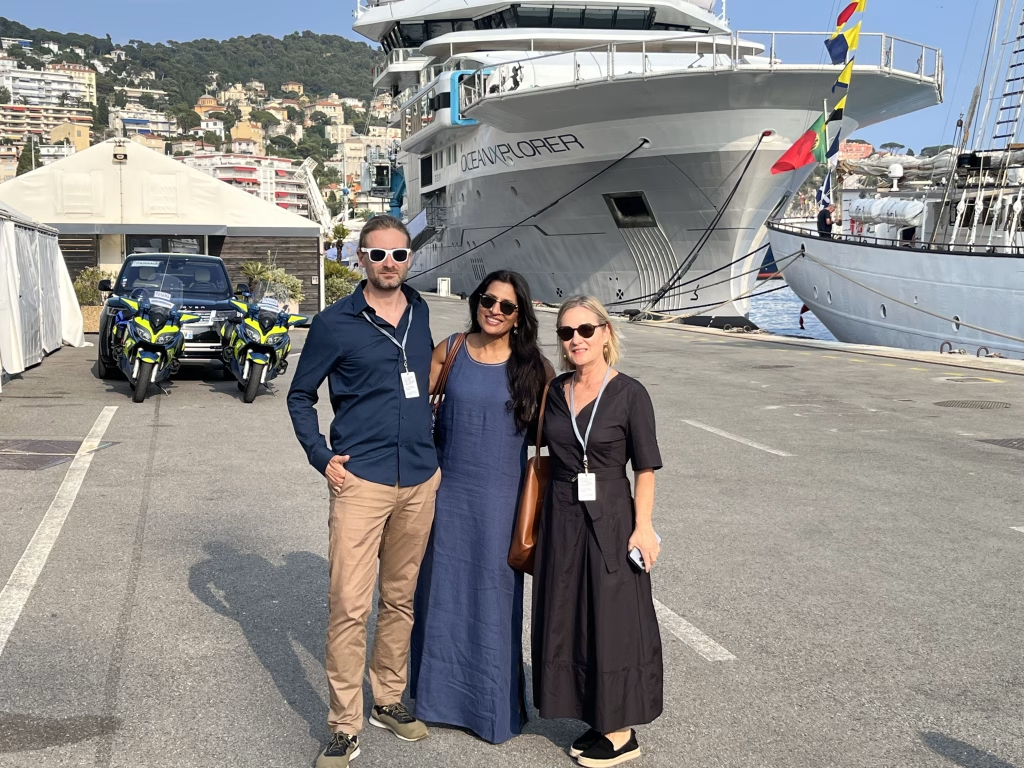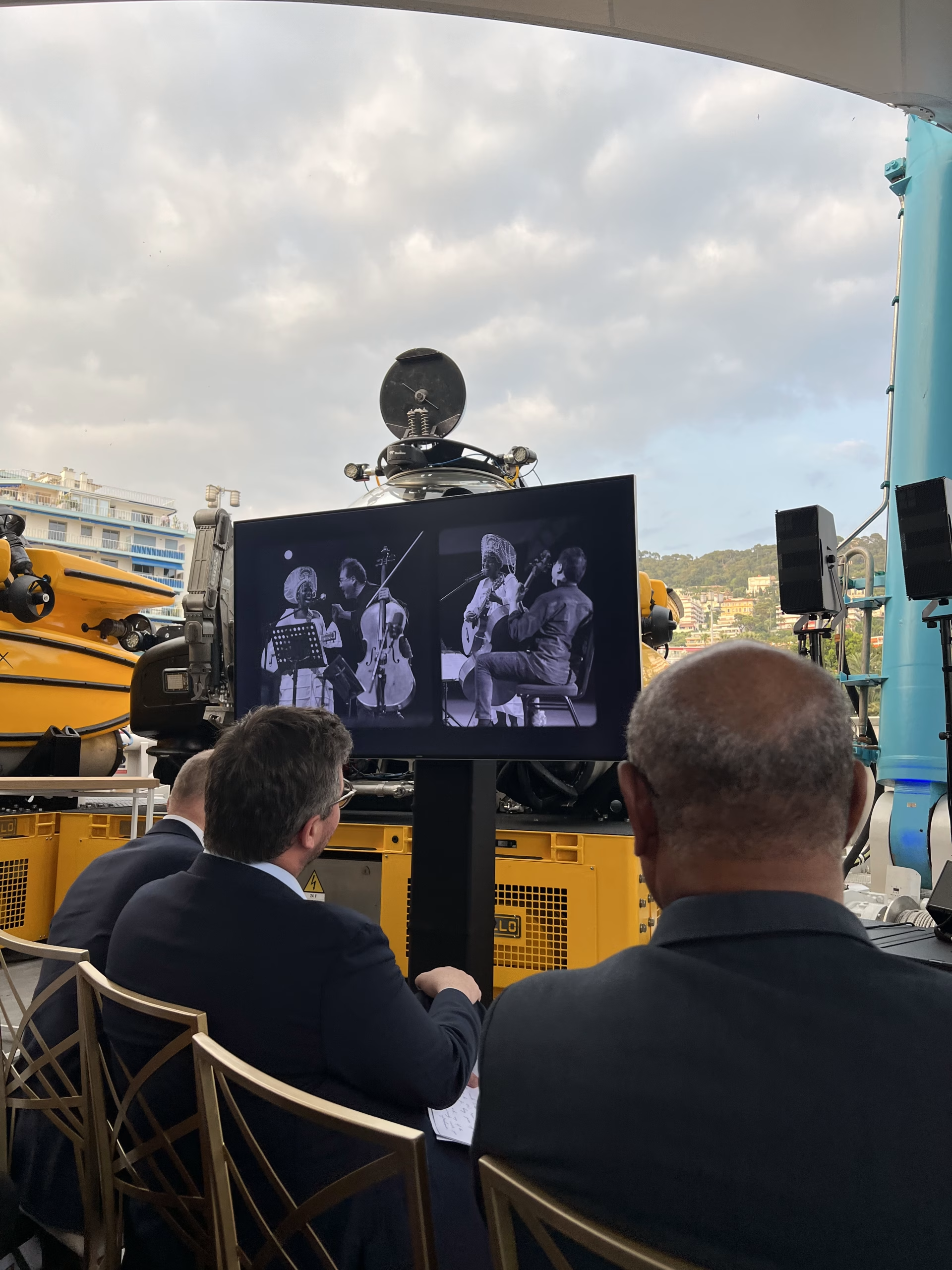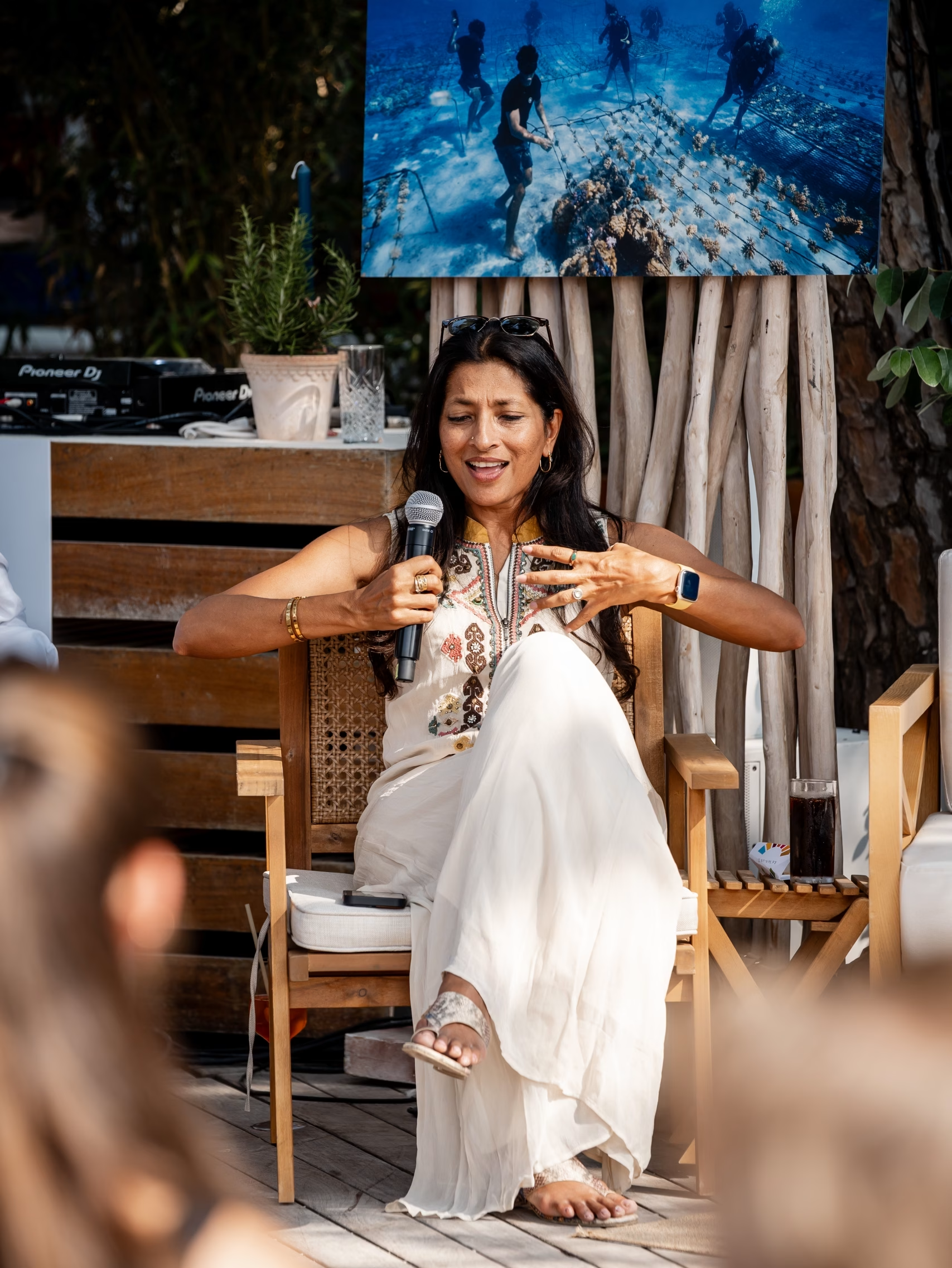Did UNOC3 Make Waves Or Just A Splash?
SWATI THIYAGARAJAN
The streets of Nice proclaimed the ocean’s importance. From campaign posters demanding an end to bottom trawling to photographs of unique ocean creatures, the host city of the recent United Nations Ocean Conference (UNOC) reminded us of the wonders of life below water.
This year was the first time members of the Sea Change Project team attended the conference, which started in 2019 and is held triennially. This year was also the first time kelp forests had been included in the UNOC political agenda. Finally, all the policy impact work done by Sea Change Project and other organisations to have these forests recognised as crucial ecosystems is gaining traction.
Our planet is blue: 80% of our biodiversity lives in the ocean and it is one of the only surface-level planetary forces that impacts weather patterns around the world. Now, the emergency button has been pressed and the alarms are blaring. The ocean is warming, the acidification threshold has been breached, and ocean ecosystems and biodiversity are at a tipping point. At a halfway point in the UN’s Decade of Ocean Science for Sustainable Development, less than 3% of the ocean has full protection from industrial and extractive activities. Additionally, SDG 14, the sustainable development goal focused on the ocean, is the least funded of all the SDGs.

Our participation at UNOC3 centred on the screening of our short film, Wisdom of the Heart, aboard OceanXplorer, the high-tech vessel used by non-profit OceanX to explore, research and document our oceans. It was presented in support of the International Platform for Ocean Sustainability (IPOS), which aims to act as a bridge between policymakers, scientists and citizens.
World-renowned cellist Yo-Yo Ma and acclaimed South African musician and ocean ambassador Zolani Mahola have become kelp champions, and the film tells the story of a special collaboration between the pair and Sea Change Project: invoking the spirit of the seaforest through voice, natural instruments, and strings. Read about the process here.
The message in the film anchors around the fact that the element missing from all the talk about conservation is connecting to how we feel. As Yo-Yo Ma says, it’s a feeling of connection that leads to ‘custodial love’ of our planet. Our home.
While we attended policy meetings, where the world’s politicians – including a delegation from the South African government – discussed the future of our ocean, it was side events that echoed this need for custodial love that provided the greatest inspiration. At the warm and welcoming space of Ocean House, we participated in several events where we could delve into the heart of why we were all there. Indigenous voices were loud and strong, bringing a deep wisdom of how our focus should start in our hearts and then fire up our minds to achieve our goals. Small island nations reminded us that they are actually large ocean territories with nothing small about them. The wisdom of whale song reminded us that all beings are equal. And a special performance by Fire, a Maori Paoa sister from Aotearoa (also known as New Zealand) sang the ocean with her incredible voice and instruments, reminding us all of the miracle of this blue planet.
The week ended in shared commitments to expand marine protection. Fifty countries signed up to the Biodiversity Beyond National Jurisdiction treaty (also known as the High Seas Treaty). If 60 countries ratify this treaty, it becomes law and a powerful tool for the protection of our greatest global commons. Some of the big positives included an announcement by the European Commission of a $1 billion investment to support ocean conservation, science, and sustainable fishing, while French Polynesia changed the game by pledging to create the world’s largest marine protected area, encompassing its entire exclusive economic zone – about five million square kilometres.
It might not be everything we wanted and falls short of decisions that could bring real change, such as bold commitments to dismantle industrial fishing subsidies, halt all bottom trawling in protected areas, stop all extractive fishing in the Southern Ocean near Antarctica, systemically tackle bycatch, accelerate decarbonisation of ships, stop ship traffic in whale migratory highways, include small-scale fisher people, of whom there are 500 million in conservation action, and halt deep sea mining. It did, however, energise us, helped us connect with ocean-committed people from across the world, and gave us the impetus to keep going forward with our work.
As one of the indigenous elders said, every positive step you take adds good energy to the fabric of the world, and step by step the whole fabric can be mended holding us in its collective warmth.
Watch a clip of Wisdom of the Heart here.
Intro photo by Joe Short.

